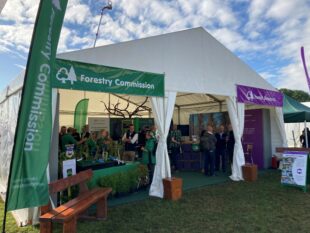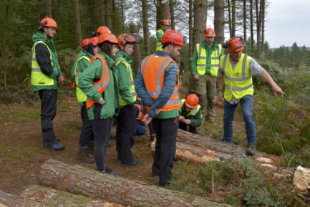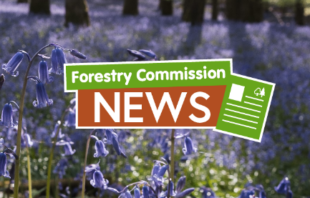 Dr Eleanor Tew McFor, Head of Forest Planning at Forestry England, outlines the horizon scan research project and looks forward to the future of the forestry sector.
Dr Eleanor Tew McFor, Head of Forest Planning at Forestry England, outlines the horizon scan research project and looks forward to the future of the forestry sector.
As the Forestry Commission celebrates its 105th year, and the Institute of Chartered Foresters reaches 100 years, it’s a good moment to reflect on the history of UK forestry. Over the past century, our forests and the way we manage them has changed drastically, and so too have the issues we face.
More than a century of change
World War 1 was followed by an intense period of reforestation, and the mechanisation of harvesting and extraction in the latter part of the 20th century led to less manual working.
The regulatory framework in which forestry operates was born, restricting felling and giving protection to key habitats. With the introduction of the UK Forestry Standard in 1998, modern sustainable forestry practice was defined. Health and safety are now paramount and risk management is part of everyday life for professionals.
Our understanding of the importance and irreplaceability of ancient woodland has grown, alongside a recognition that species diversity and resilience are key. We’ve seen an exponential increase in the number of pests and diseases that affect our trees, partly due to trade globalisation as well as climate change. In recent years, the concept of natural capital has enabled us to better quantify the vast array of benefits provided by trees and forests.
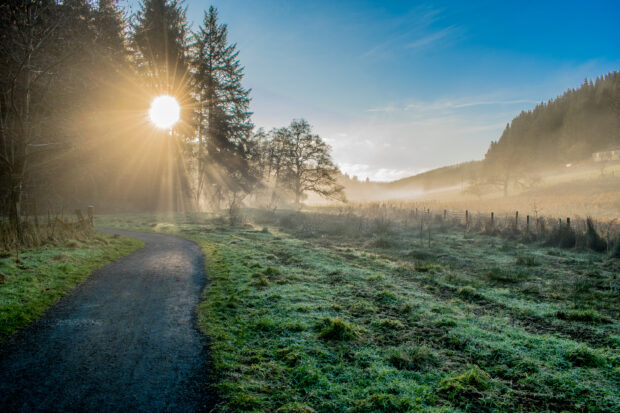
Looking forwards
Our sector has changed dramatically over the last 100 years and we can be certain that it will continue to evolve over the coming decades.
The future holds huge opportunities for forests and woodland, and their role in society. They will play a pivotal role in the response to our greatest challenges, including climate change, biodiversity loss, human wellbeing and the supply of raw materials.
However, we’re at a time of huge change – environmentally, societally, financially – and there’s a diverse array of threats facing the trees themselves and the sector that looks after them. If our forests and the sector are not in good shape, our capacity to respond is limited.
Trees live for a long time… We need to think ahead about both the positive and negative issues that we need to address in the coming decades.
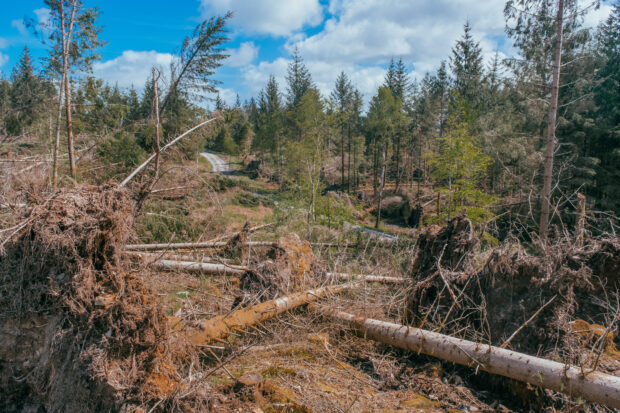
What was the horizon scan?
In 2023, I was privileged to have the opportunity to bring together a panel of experts to undertake a horizon scan looking at the key issues facing UK forestry over the next 50 years.
Funded by Forestry England, the project assembled academics, policy makers and practitioners from across and beyond the sector, to identify the emerging challenges and opportunities for forestry in the coming years.
We used a tried-and-tested methodology which has been used effectively in nature conservation for 15 years. We reached out via networks to over 7,000 people to collect ideas and information. From an initial longlist of 180 suggestions, the expert panel painstakingly reviewed, scored and prioritised issues to define a final list of the top 15. A few months later, we published the results in a paper: A horizon scan of issues affecting UK forest management within 50 years in Forestry: An International Journal of Forest Research.
The main purpose of a horizon scan is to find emerging trends. These are issues that aren’t really on our radars yet but which we think have the potential to become significant in future. So, the final list doesn’t include topics like deer and squirrel damage, climate change and the sector’s skills shortage – these are all important but we know about them already. Instead, the horizon scan has identified issues that are less familiar but we need to start thinking about.
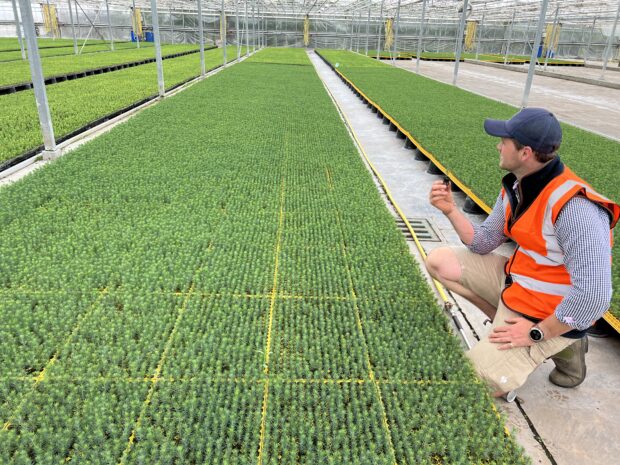
Challenges
The final list of 15 issues is instructive and includes some considerable challenges.
For example, Issue 5 (Viruses and viroids emerge as pathogens of increasing importance for trees) emphasises our limited understanding of the effects of viruses and viroids on trees, leaving the sector unprepared and vulnerable.
Issue 3 (Forest management becomes more challenging due to changing seasonal working windows) highlights the increasing practical impact on forest operations of more extreme weather events throughout the year, and the need for more flexible working.
Most importantly, Issue 1 (Catastrophic forest ecosystem collapse) describes the sobering possibility of widespread forest dieback due to interrelated hazards such as climate change and disease.
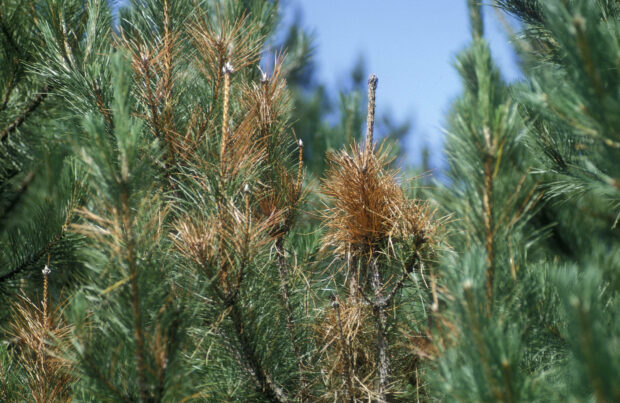
Opportunities
The list also includes a range of great opportunities.
For instance, Issues 10 and 11 cover the potential for new technologies to transform the way we manage our woodlands and improve health and safety (New technologies facilitate widespread adoption of smart silviculture and New technologies improve worker health and safety).
Issue 7 (Trees are at the heart of future urban planning) outlines the crucial role that trees will increasingly have in towns and cities, and the possibility of major new urban forests as ‘green lungs.’
Issue 6 (eDNA revolutionises our understanding of forest ecosystems) highlights the data and monitoring revolution offered by environmental DNA, which will strengthen our understanding of the biodiversity value of forests, and their ecological integrity and resilience.
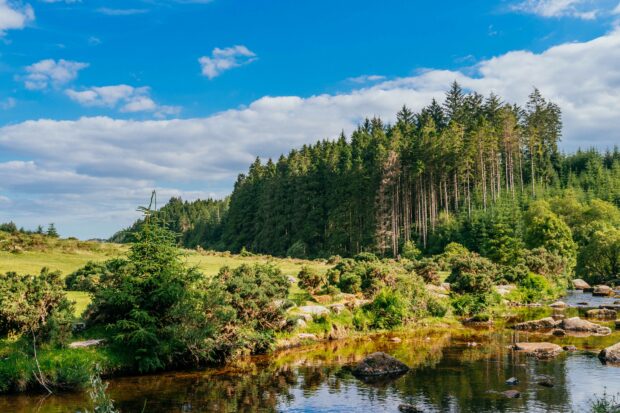
It's time to act
The horizon scan was a really exciting exercise. The published paper received a lot of attention but highlighting the issues was only the first part. The key point of a horizon scan is identifying emerging trends so that we have time to act. Surely, we now need to have a conversation across the sector about how we respond?
The Forestry Commission and Institute of Chartered Foresters are keen to engage as many people as possible with the horizon scan, and what we should do next.
They have curated a webinar series called ‘Forestry Facing the Future’, to explore the topics in detail and stimulate thinking about how the sector responds. The webinars include presentations and discussion from experts in their fields, people from the original expert panel, leading academics, business leaders and policy makers, as well as those working in practical forestry. Crucially, there will be plenty of opportunity for questions and conversation amongst the delegates who attend.
The series is aimed at anyone interested in trees, woodlands and their management. I strongly encourage you to join.
Speakers include:
- Dr Bianca Ambrose-Oji, Head of Society and Environment Research Group, Forest Research
- Tom Barnes, Managing Director, Vastern Timber
- Alison Field, FICFor FRSA
- Dr Gabriel Hemery FICFor CEnv, Chief Executive, Sylva Foundation
- Professor Rob Mackenzie, Professor of Atmospheric Science, Birmingham University
- Prof Miles Richardson, Head of Psychology, University of Derby
- Dr Dan Ridley-Ellis, Head of Centre for Wood Science and Technology, Edinburgh Napier University
‘Forestry Facing the Future’ promises to be a fascinating series. I’m looking forward to hearing all the different perspectives that we need to help us find solutions. It’s a real moment to embrace the challenges and opportunities, as we make sure our forests and sector are fit for the future.
Book your tickets for Forestry Facing the Future.
